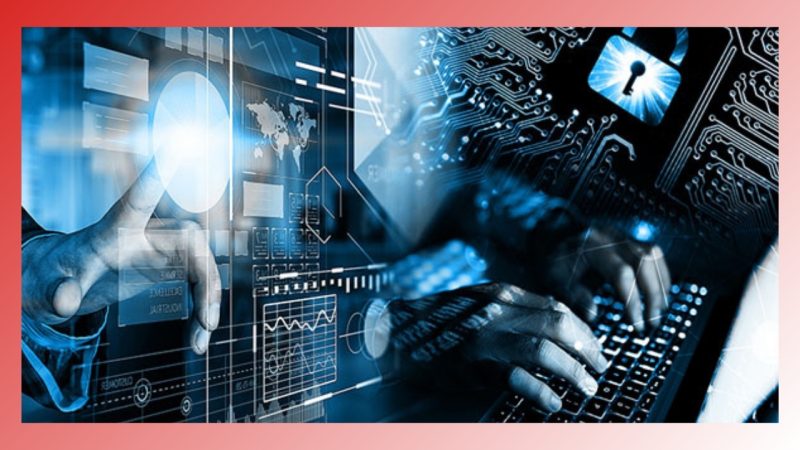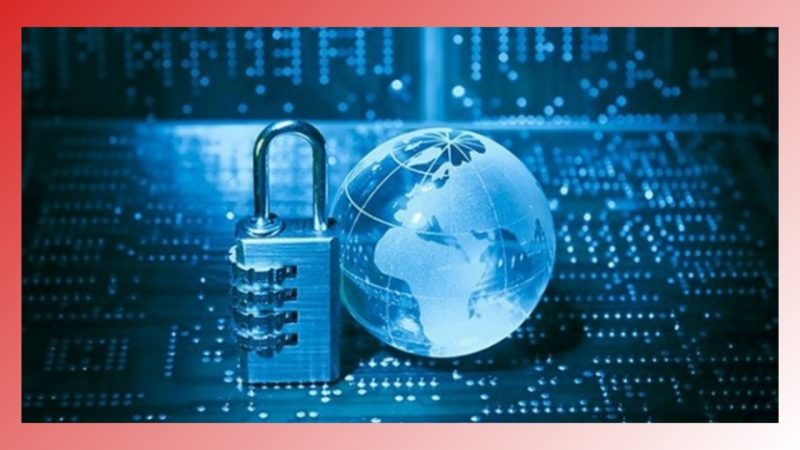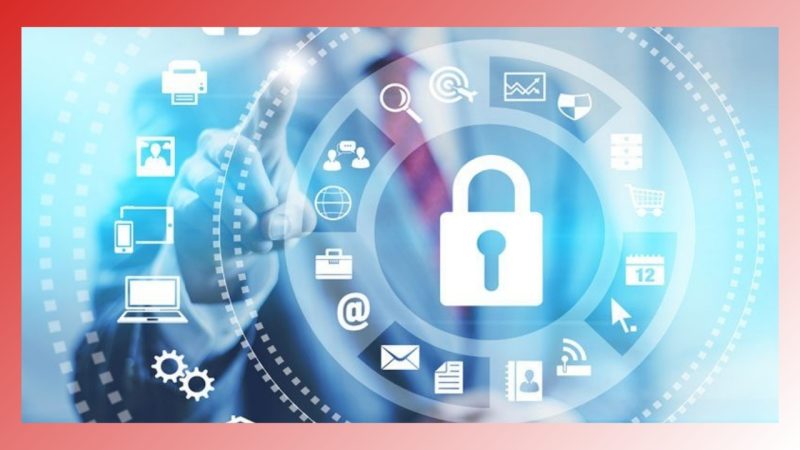With businesses increasingly moving online and shifting to cloud storage, the demand for cybersecurity is currently at its peak. With that milestone comes a high demand for cybersecurity experts who can safeguard digital data. A good cybersecurity professional must possess a rich and diverse skill set. In this tutorial, we will explore the top eight cybersecurity skills (expanded from five, due to popular new advances!) that will help you get into the field of cybersecurity.
Top 5 Cybersecurity Skills
1. Networking and System Administration
- An in-depth understanding of networking is required to start a career in cybersecurity. Learning networking will help you understand data transmission’s technical aspects, which will help you secure your data. Taking up networking certifications like CompTIA Security+ and Cisco CCNA is advisable.
- Another skill that will be beneficial for you is to master system administration. It is all about configuring and maintaining computers. You must be curious to know every aspect of your computer features and settings and play around a bit.
2. Knowledge of Operating Systems and Virtual Machines
- A cybersecurity professional must have a strong knowledge of operating environments such as Windows, Linux, and Mac OS. As a cybersecurity expert, you should be comfortable working on any OS. VMs allow you to train and research in an isolated environment and help you maximize your skills.
- The next point to remember is to know Kali Linux as it is the most widely known Linux distribution for ethical hacking and penetration testing. It comes with several hundred tools related to Penetration Testing, Malware Analysis, Security research, Computer Forensics, and so on.

3. Network Security Control
- Network Security Control refers to the different measures which are employed to enhance the security of a network. You need to know how your network works, how routers, firewalls, and other devices work. A firewall is a hardware or software that blocks outgoing or incoming traffic from the internet to your computer. As a cybersecurity expert, you must leverage a firewall to filter and prevent unauthorized traffic onto the network.
- Additionally, you must know about Intrusion detection systems, Intrusion Prevention Systems, Virtual Private Networks (VPNs), and remote access. For example, you should operate the IDS and recognize any security policy violations and malicious traffic on the network.
4. Coding
- Having zero coding knowledge may limit your cybersecurity opportunities in the future. Hence, it is advised to acquaint yourself with a few coding languages.
- Given below are the list of a few coding languages you can learn to have a successful career in cybersecurity:
- C and C++: C and C++ are low-level programming languages you need to know as a cybersecurity professional.
- Python: It is a well-known high-level programming language that is becoming popular among cyber experts today. It will help you identify and fix vulnerabilities.
- JavaScript: A good advantage of knowing JavaScript is that you can prevent cross-site scripting attacks.
- PHP: Most websites are created using PHP, learning it will help defend against intruders.
- HTML: HTML is yet another language cybersecurity professionals should understand, as most websites use it, and it is one of the easiest languages to learn.
- Go lang: It is great for cryptography; you can solve various cybersecurity problems with it.
- SQL: Attackers use this language to damage the stored data; one example is the SQL injection attack. Hence, having a good understanding of SQL(Structured Query Language) is beneficial.
- Assembly Language: Assembly will help you understand how malware functions work and thereby help you defend against it.
5. Cloud Security
- Companies are looking for professionals with security skills applicable to public and hybrid cloud platforms such as AWS and Azure. More organizations look to cloud infrastructure to store data and run applications. This includes the implementation of policies and technologies that protect cloud-based systems and devices.
- Like Application Development Security, Cloud Security also involves building secure systems from the start. People with the experience and knowledge in managing big platforms, such as Microsoft Azure, AWS, and the Google Cloud Platform, are in high demand.

6. Blockchain Security
- Blockchain’s popularity is increasing, thanks in part to the level of security it offers. Consequently, cybersecurity professionals should become familiarized with blockchain and how it handles security issues. Consider it preparing for the future.
- Blockchain will likely make security inroads into areas like Internet of Things devices (more on this later), network control, supply chain integration, identity control, and mobile computing.
- Blockchain’s complex nature makes it difficult for intruders to compromise. For a cybercriminal to corrupt or destroy a blockchain, they would have to eliminate the data found on each user’s computer that’s connected to the targeted global network.
7. The Internet of Things (IoT)
- According to Statista, there will be over 30 billion Internet of Things devices connected worldwide by 2025. With such a huge number of devices comes many more opportunities for security vulnerability. Therefore, IoT security will become a higher priority in the near future, and an essential part of maintaining the integrity and security of the overall Internet system.
- Many IoT devices are sensors that collect personal data, which raises the stakes in maintaining secure networks and preserving consumer confidence.
- IoT security emphasizes protecting connected devices and networks over the Internet, especially since most of these devices access networks without human intervention or oversight. Therefore, it becomes important to make sure that proper security measures are in place so that IoT devices can be left alone to perform their functions automatically, without cybersecurity experts having to be concerned about keeping out unauthorized intruders.
8. Artificial Intelligence (AI)
- Like blockchain, Artificial Intelligence is a relatively young innovation that’s been enjoying widespread use. AI is perfect for the cybersecurity sector, as it brings reliability and consistency to cybersecurity measures, as it helps security professionals identify suspicious activity and impart a greater understanding of the cyber environment.
- AI brings a level of automation and support that is unmatched by human capabilities, catching threats that may otherwise go unnoticed and unaddressed.
- Artificial Intelligence can also be trained to learn and evolve, making it better equipped to handle new emerging threats and hacking techniques.
Additional Cybersecurity Skills
Now, go through a set of additional skills that can help you get into the cybersecurity field:
- Risk Analysis: Cybersecurity professionals are required to identify, manage and mitigate risks. Risk management and mitigation are a skill set that will be in high demand in the coming years.
- Information Security: Companies require skilled professionals who can protect their electronic data from unauthorized access.
- Security Incident Handling & Response: As a cybersecurity expert, you must be prepared to handle any genuine threat of violating an organization’s security policy. With security incident management, you are required to identify, manage, record, and analyze security threats in real-time. As a security practitioner, you must also manage and analyze the security information and event management (SIEM) tools and services.
- Security Audit: It is an internal check that is carried out to find flaws in the organization’s information system. Security audit and compliance knowledge are very crucial because any missed area of regulatory compliance might incur significant fines and penalties for the organization.
- Laws and Regulations: This is an often-overlooked cybersecurity aspect. There are several cybersecurity laws and regulations that you should be aware of. These laws define how you can use the internet and protect people from becoming victims of cybercrimes.
Apart from these additional cybersecurity skills, make sure you stay updated with new hacks and learn new tools, as cybersecurity is an ever-evolving field. Apart from the technical skills, there is another important set of skills you should have under your belt, and they’re known as “soft skills.” Having a set of good soft skills will help you bag your dream job. You can watch this video on the top five soft skills that will help you grow in your career and to incorporate those skills: Top 5 Soft Skills

Cybersecurity professionals can make between ₹6LPA and ₹32LPA salary
Cyber security course
Are You Ready to Become a Cybersecurity Professional?
Cybersecurity professionals are in great demand today, and this demand will only continue to grow in the future. After reading this tutorial, you would have an idea about the top cybersecurity skills you have to possess to start or grow your cybersecurity career. Simplilearn’s PG Program in Cyber Security is a right choice for you to kick start your career in this rapidly growing domain.
Do you have any questions about this cybersecurity skills tutorial? If you do, then please put it in the comments section of this tutorial. Our team will help you solve your queries at the earliest.
Click on the following video to know more: Top 5 Cybersecurity Skills.


